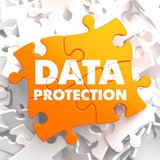
Of course in certain scenarios computer systems themselves and not just the data are what need to be protected. For example, computers that control critical infrastructure such as power grids, medical systems and financial applications must be giving the highest protections possible.
Data loss can come in many flavors, not just malware infections. Critical data stored on a single hard drive is an imminent disaster waiting to happen. The hard disk drive found in most computers is typically a component with a high probability of failure. More recent drive technologies such as solid state disks have reduced the failure rate, but are not completely immune.
Back Up Your Data!
Do you want to tell your family members that you lost photos from a 1st birthday party? Do you want to tell your boss that files stored on your network were destroyed and are unrecoverable? In order to avoid these situations, it is always a good idea to keep a backup copy of your important documents, files, videos, photos and every other type of data that you can’t afford to lose.
Things to Remember…
- Backups should be scheduled regularly. Verify successful backups.
- Test that the backed up files can be recovered or read.
- Backups should be stored off-site (even for home users). If you backup to an external drive or network storage/NAS and leave it in the same location as the computer, what happens in the event of a burglary or fire?
- Backup files before scanning for malware. After cleaning a computer may not boot.
The average home user or small business can use an external drive or an online service for backup. If using an external drive, I suggest encrypting the drive and keeping it at another location such as your home, office, or family member’s house. I’ve had great experience with Apricorn hardware encrypted drives. These drives require no additional software and work with all modern operating systems.
If you want a hands-off approach to backups, use an online service such as Crash Plan. There are others that do the same. Just be careful of who you trust. Depending on what is being backed up, you should care about where the data is stored, who has access, and what (if any) encryption methods are used.
Related Links
Leave A Comment